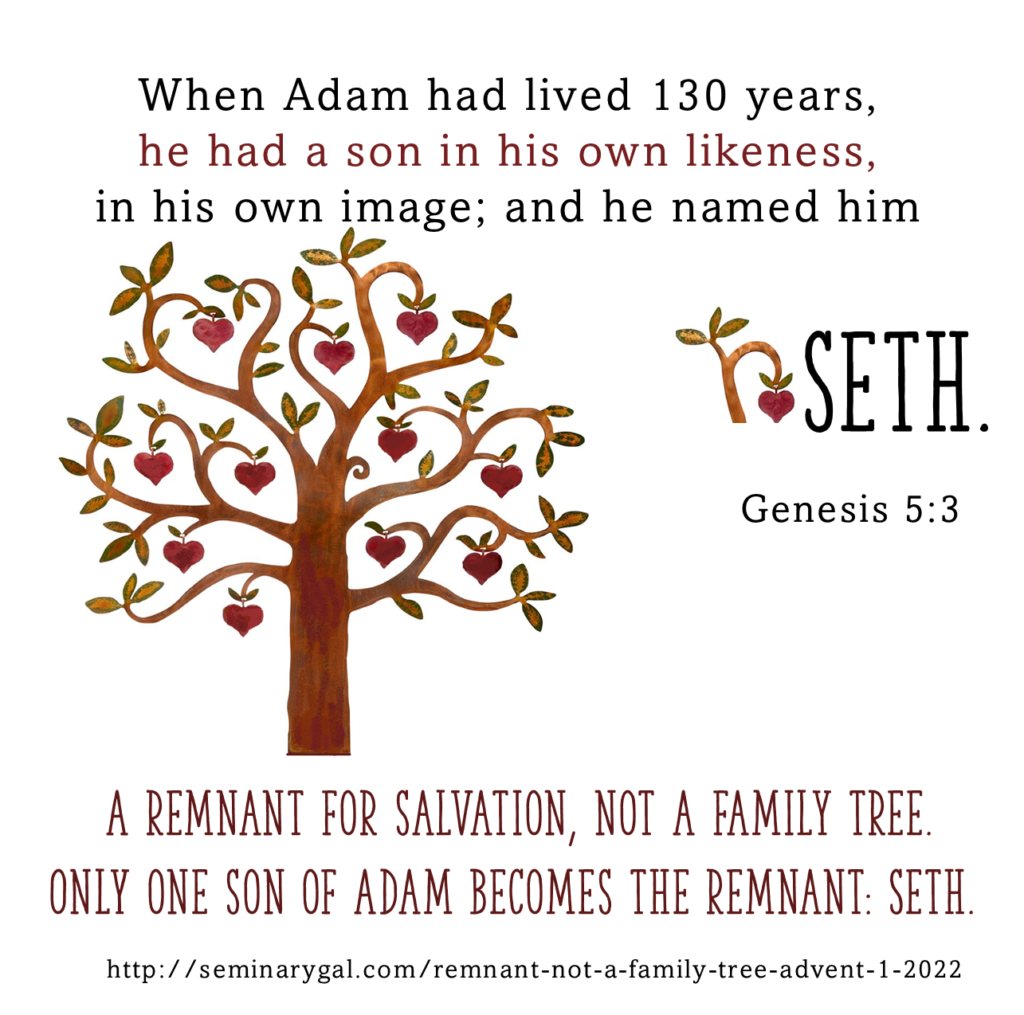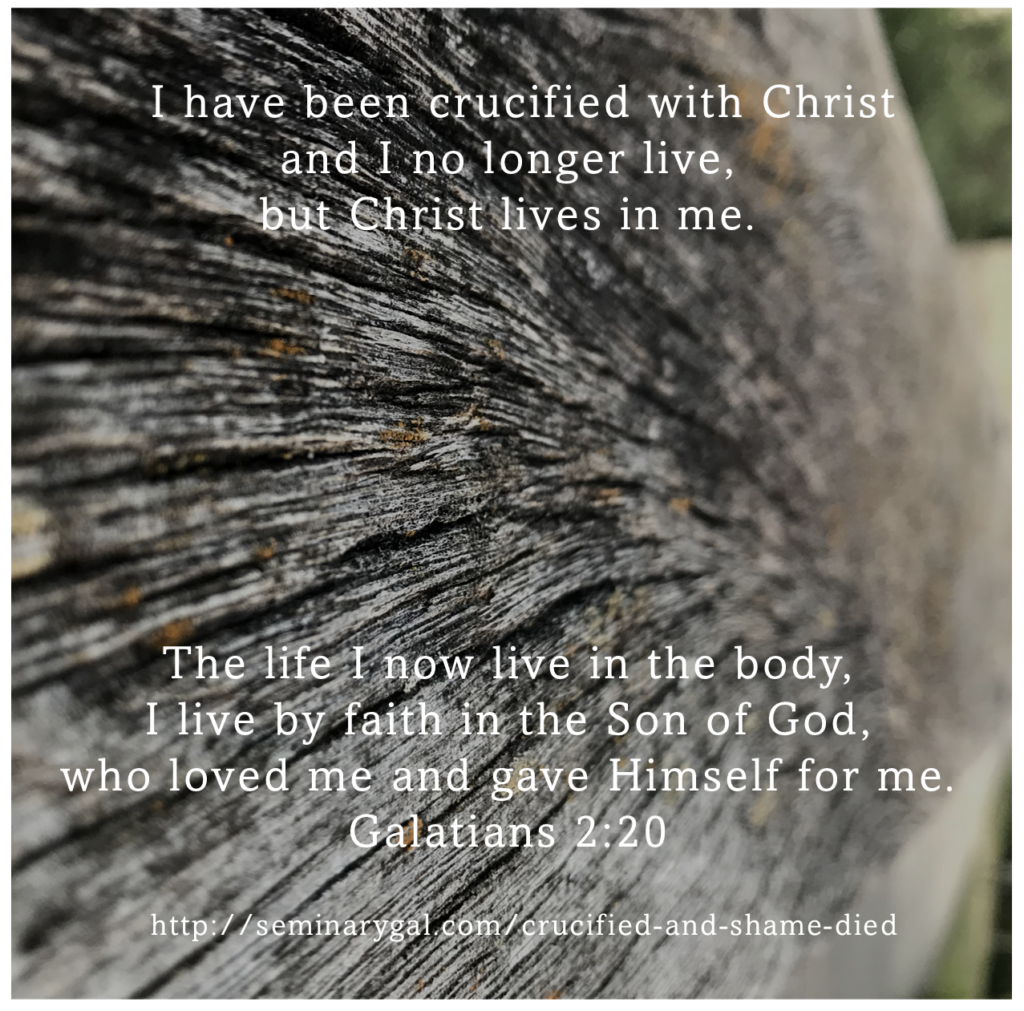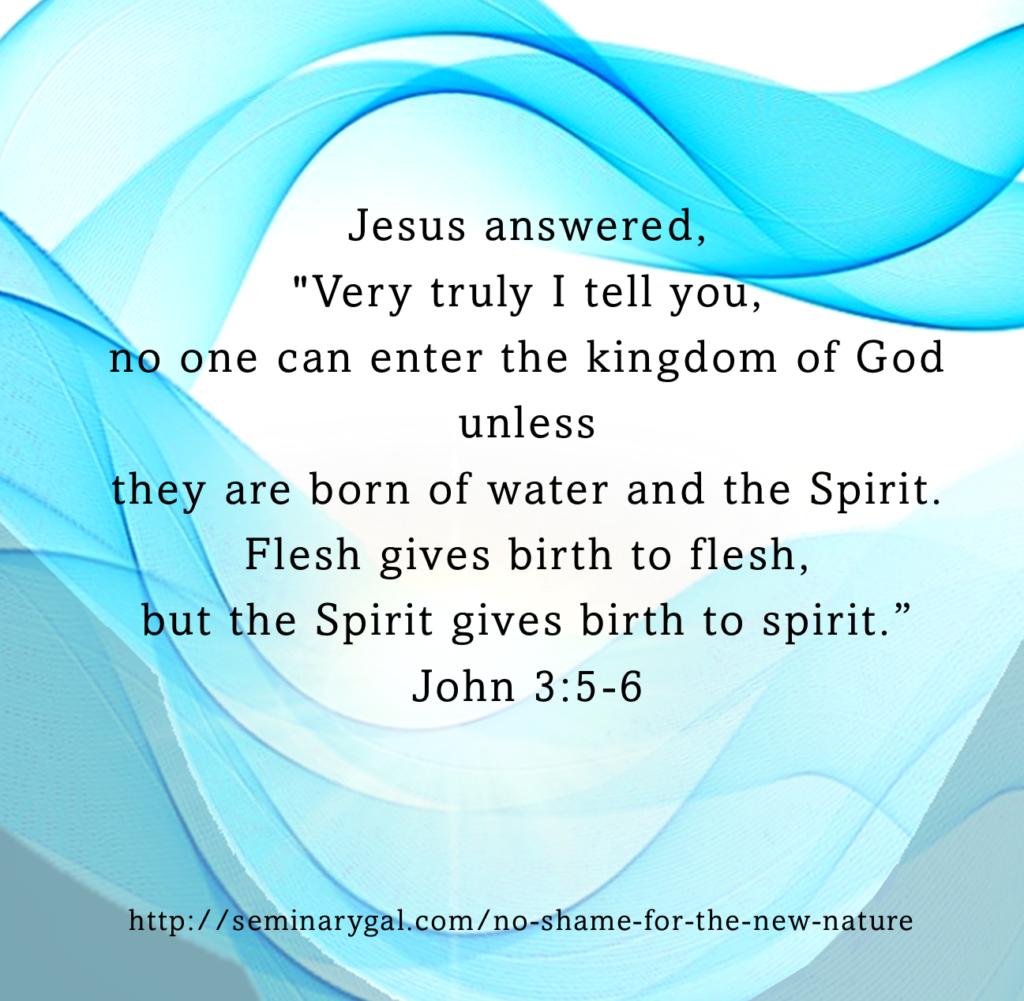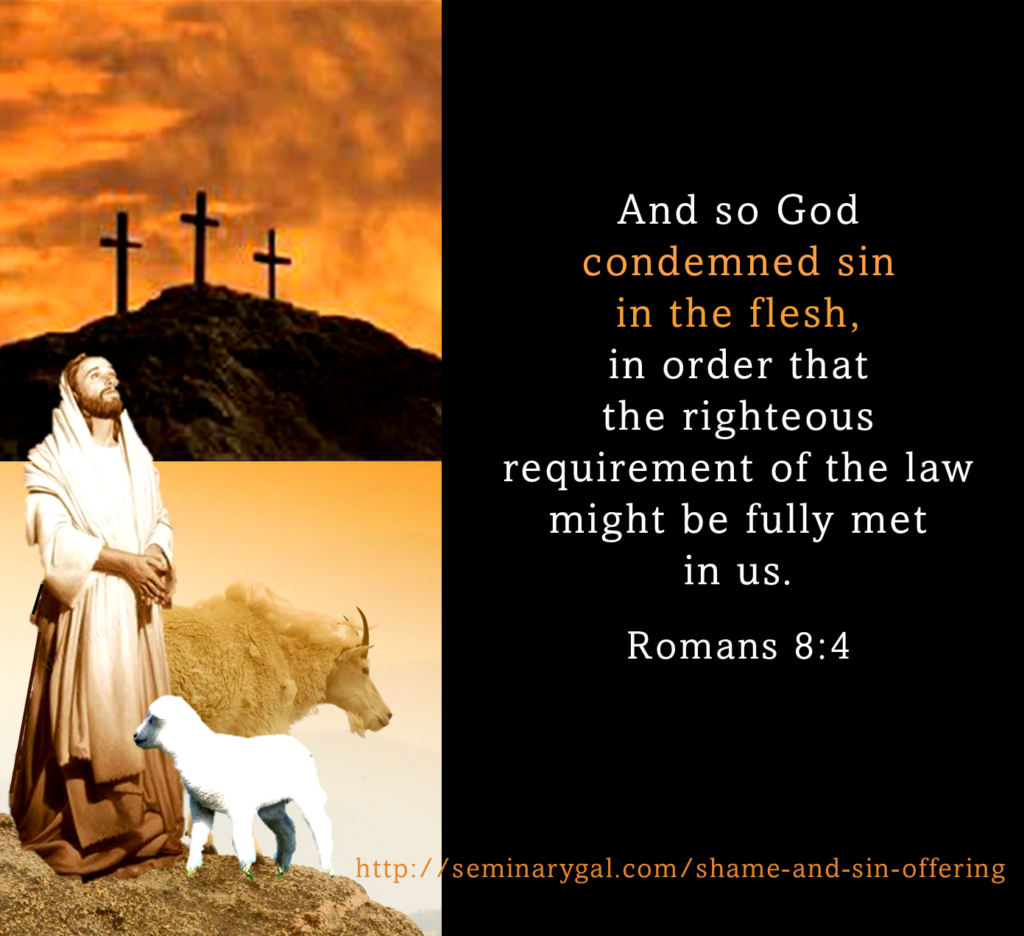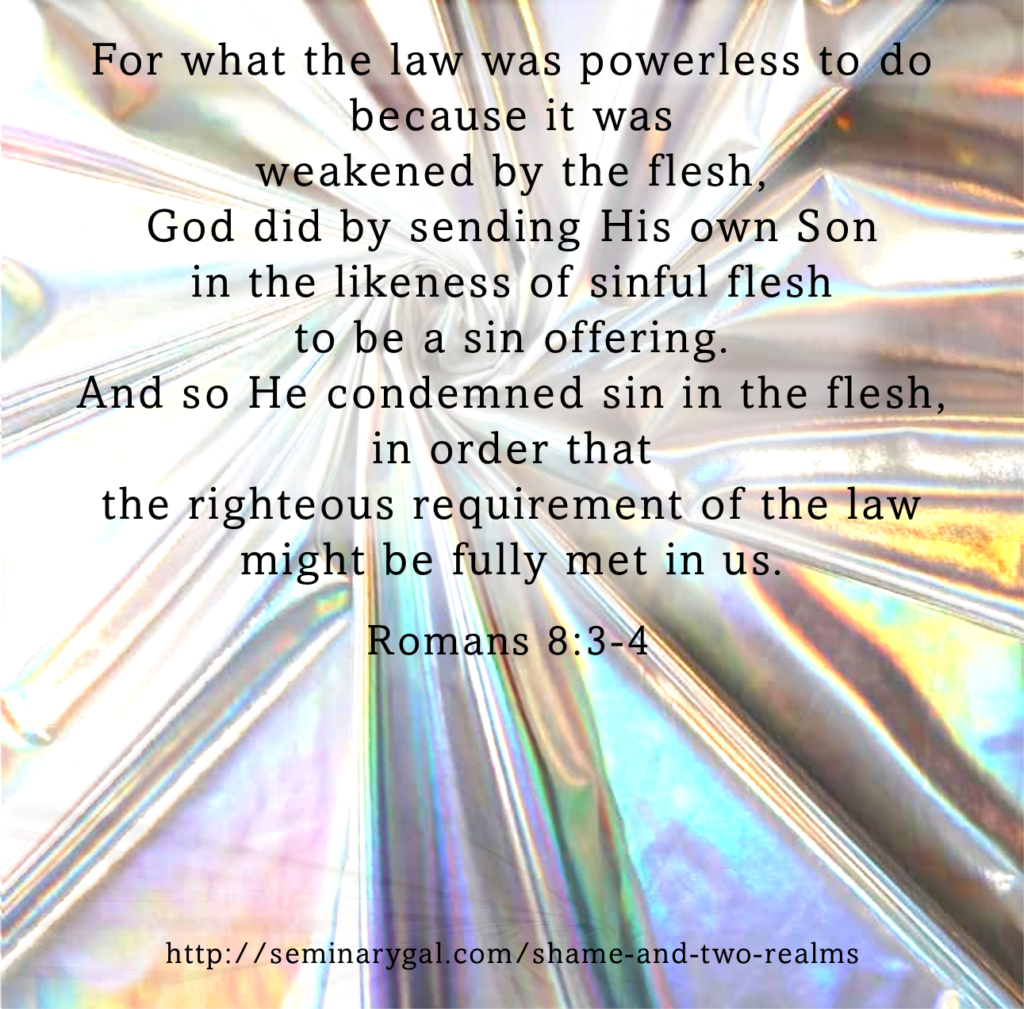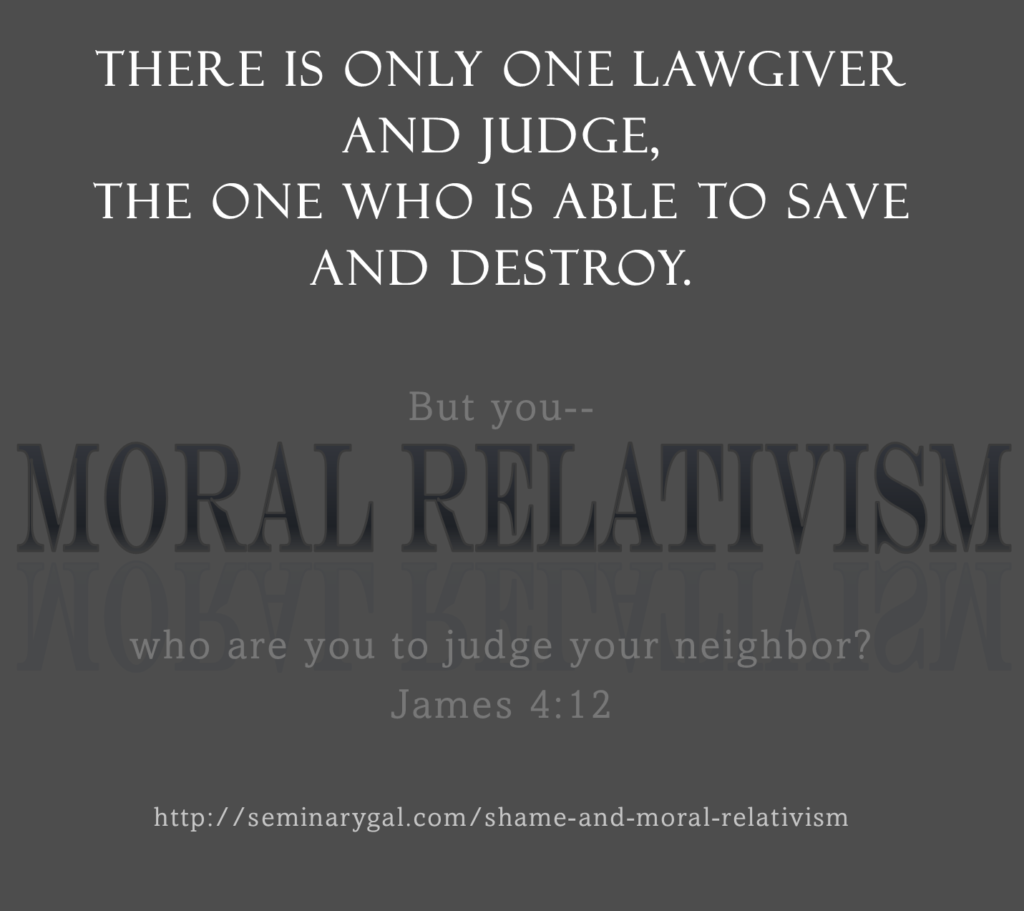Continuing our look at the remnant visible in Jesus’ lineage, we can see that remnant not only as Adam’s true image in Seth, but Seth’s remnant of faith heralded with the birth of Enosh.
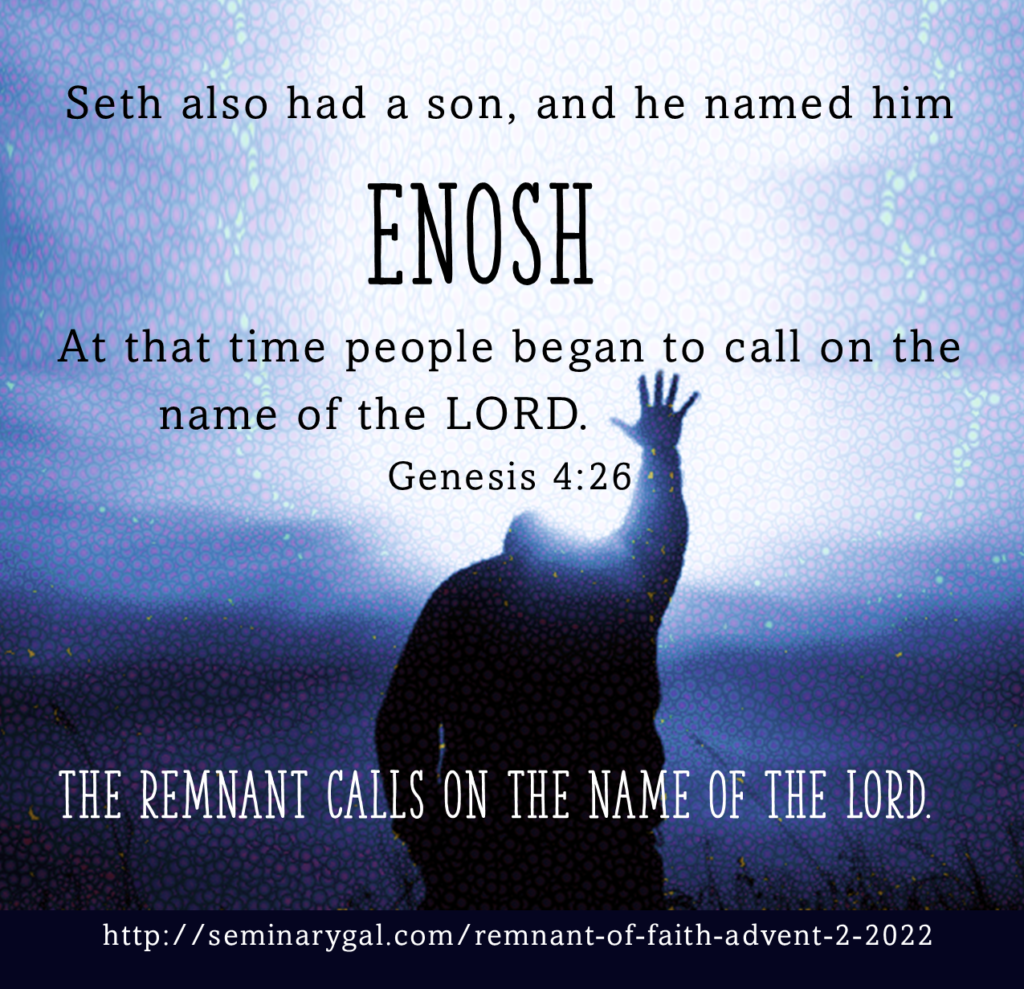
Genesis 4:26 Seth also had a son, and he named him Enosh. At that time people began to call on the name of the LORD.
Enosh’s name in the Hebrew means man, frail and weak, and mortal.
Man’s weakness and mortality explain why people would begin to call on the name of the LORD. Unlike the Babylon Bee’s humorous depiction of Christians ( Disappointed Christian Republicans Briefly Consider Placing Trust In God Again | Babylon Bee ) those of us who worship God, not politics, understand that there is a remnant who call on God no matter what the politics of the day might do.
Questions for further thought:
How does acknowledgment of one’s own inability create a desire for calling out to God?
In the Scripture for today, does the word “people” mean all people or just that praying to God became an acknowledged thing for people to do?
What types of events and circumstances remind us of the truth of what Jesus said? “With man this is impossible, but with God all things are possible.” (Matthew 19:26)
Prayer:
Lord, when I am frail and weak, please help me to remember that by faith in You, I am strong. Help me to acknowledge You in my everyday life, not just when life is difficult and my flesh at its weakest. May I always remember that with You, all things are possible. I praise You, Lord Jesus, who has made the impossible for me, a possibility and reality in my life by faith in You. You are a good Lord and I praise You. Amen.
===
Advent began Sunday, November 27, 2022 and continues to Saturday, December 24th as we explore the remnant spoken of in Scripture and awaken as the end draws near.
By signing up on the sidebar of my Home Page you can receive these daily “Awaken, Remnant” devotionals. Or they will be reposted on SeminaryGal’s Facebook page as well.
===
Acknowledging inquiries about an entire season’s devotionals for your study group’s planning purposes, Seminary Gal’s prior seasons’ Advent devotionals can be accessed via the archives to the right and are as follows:
- The multi-faceted Interlude between the promise of a Deliverer and the birth of our Messiah and King was the theme of 2021’s devotional series. It is archived beginning November 28, 2021.
- 2020’s Devotional Series Divine Intervention began on November 29, 2020 and explored God’s activity on behalf of a hurting world and nations in tumult– Intervention for you and for me when our status as sinners required nothing short of a miracle.
- God’s Christmas list explored what might be on God’s Christmas list, learning what He wants from us. It began December 1, 2019.
- Storyteller began December 2, 2018 and entered into the Christmas story through its telling.
- The 2017 series Still Christmas, began December 3, 2017 and was the Advent complement to the Lenten series, Be Still and Know that I AM God.
- The 2016 season devotionals were called “Timeless: The Message of Christmas for All Ages” and explored how the message of Christmas is timeless truth, for all ages of people, and for all ages at all times. Timeless hope, encouragement, grace, peace, and love as we looked into the Word, saw the face of our Lord Jesus, and experienced restoration in His presence. His goodness and His Gospel are truly Timeless. The 2016 devotionals began November 27, 2016.
- The 2015 season devotionals were titled Incarnation and involved digging deep–and yes, I mean deep– in this important mystery of Christian theology. They began November 29, 2015.
- Carol Me, Christmas! remains one of my most popular offerings and tells the Christmas story through our most beloved Christmas hymns and carols. You can access all of the numbered devotionals from 2014 via the archives. They began November 30, 2014.
- The 2013 series was Emmanuel: When LOVE Showed Up in Person and examined the Prologue to the Gospel of John. It began December 1, 2013.
- The 2012 series focused on Expecting the Unexpected…the unexpected, unlikely, and uniquely divine qualities of God’s perfect plan outlined in Luke’s account of the Christmas story. It began December 1, 2012.
